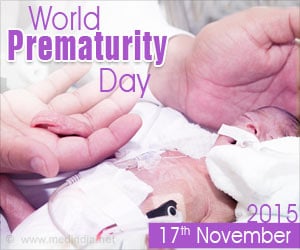Preterm babies have less well-being in childhood and are less likely to master social transitions such as finding romantic partners, having sexual relationships, and becoming parents in adulthood.

TOP INSIGHT
Preterm babies have lower chances of experiencing sexual relationships, finding a romantic partner, or having children in adulthood because they have poorer social interactions in childhood.
Read More..
More needs to be done in schools and by parents to encourage social interactions at younger ages, so when they transition to adulthood they are more likely to meet someone and increase their wellbeing
Adults who were born pre-term (under 37 weeks gestation) are less likely to have a romantic relationship, a sexual partner and experience parenthood than those born full term. The meta-analysis by researchers at the University of Warwick with data from up to 4.4 million adult participants showed that those born preterm are 28% less likely to ever be in a romantic relationship.
A meta-analysis conducted by researchers from the Department of Psychology at the University of Warwick has published 'Association of Preterm Birth/Low Birth Weight with Romantic Partnership, Sexual Intercourse and Parenthood in Adulthood: A Systematic Review and Meta-Analysis' in JAMA Network Open today, 12th of July. They have found that adults who were born pre-term are less likely to form romantic relationships than full-term peers.
In the analysis 4.4 million adult participants those born preterm were 28% less likely to form romantic relationships and 22% less likely to become parents, when compared to those born full term.
Those adults who were born very (<32 weeks gestation) or extremely preterm <28 weeks gestation) had even lower chances of experiencing sexual relationships, finding a romantic partner or having children at the same age as those born full term, with the extremely pre-term born adults being 3.2 times less likely to ever having sexual relations.
Despite having fewer close relationships, this meta-analysis also revealed that when preterm born adults had friends or a partner, the quality of these relationships was at least as good in preterms compared to full term born adults.
First author of the paper, Dr Marina Goulart de Mendonça from the Department of Psychology at the University of Warwick comments:
"The finding that adults who were born pre-term are less likely to have a partner, to have sex and become parents does not appear to be explained by a higher rate of disability. Rather preterm born children have been previously found to have poorer social interactions in childhood that make it harder for them to master social transitions such as finding a partner, which in turn is proven to boost your wellbeing."
The senior author, Professor Dieter Wolke, from the Department of Psychology at the University of Warwick adds:
"Those caring for preterm children including parent's health professionals and teachers should be more aware of the important role of social development and social integration for pre-term children. As preterm children tend to be more timid and shy, supporting them making friends and be integrated in their peer group will help them to find romantic partners, have sexual relationships and to become parents. All of which enhances wellbeing."
Source-Eurekalert
 MEDINDIA
MEDINDIA




 Email
Email





